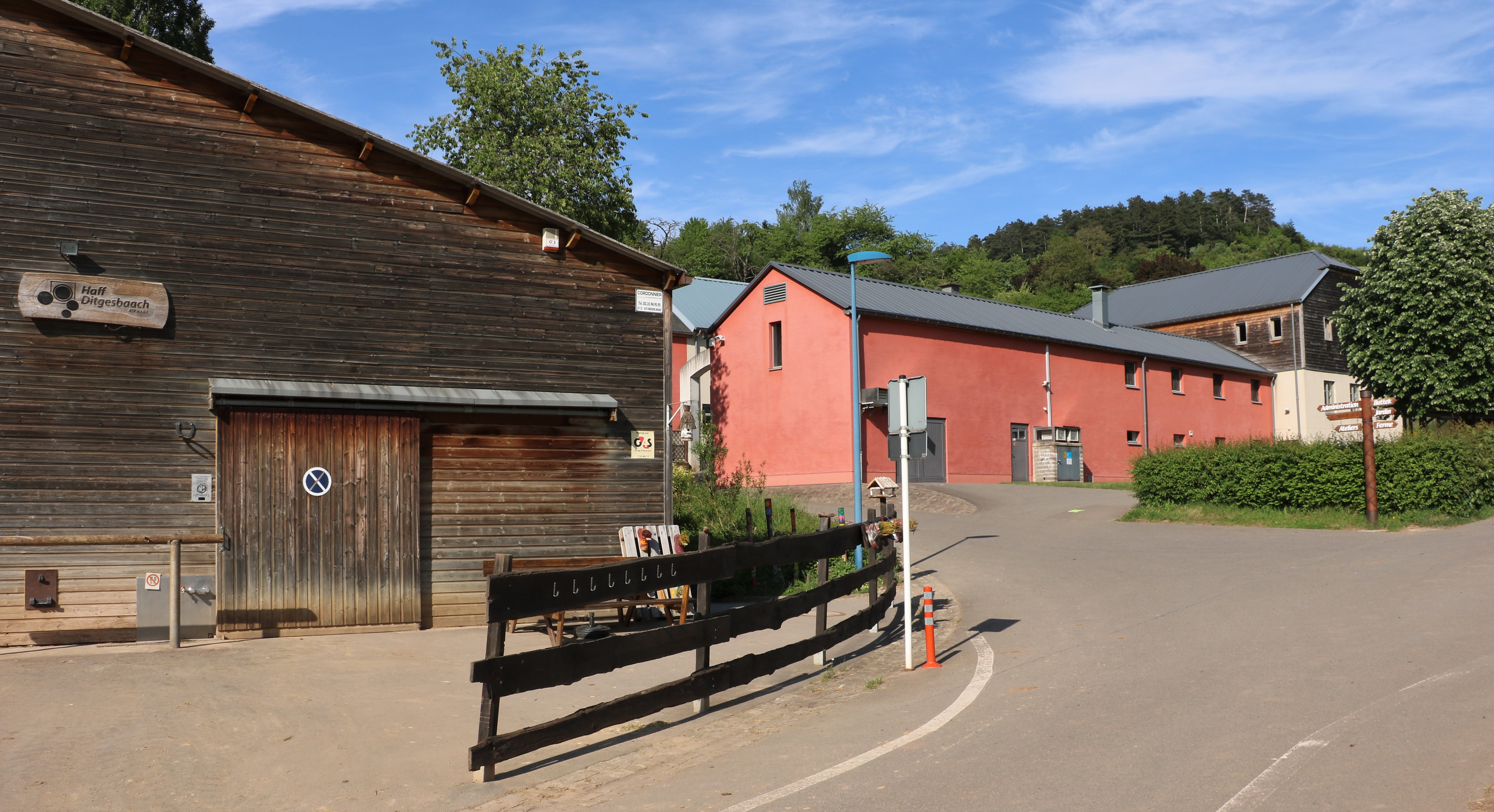From the Madhouse to the Cradle
Here we are now at the farm called Ditgesbaach; you can read the name above the stable doors. Initially, it was a private farm. Existing since 1905, it was furnishing, at the request of the director, at least part of its agricultural products to the Maison de Santé. The role that the farm played did not change until the end of the Second World War, when the Luxembourgish state bought it. The goal was to integrate the farm into the complex of the Maison de Santé, so that the patients of the institution could work there and produce part of their own food directly.
Only a couple of words on the Second World War: on this very hill were stationed, after the first liberation of Ettelbruck on the 11th of September 1944, American soldiers who were fighting the Germans who were still present on the hills surrounding Diekirch. In reaction to the Ardennes offensive (the so-called “Von Rundstedt Offensive”, later also known as the “Battle of the Bulge”, which began on the 16th of December 1944), the Allied soldiers had to retreat. However, they were not gone for long, since they returned on Christmas Day of the same year.

Now back to our farm Ditgesbaach: after the Second World War, the Maison de Santé was benefitting from the agricultural products that the farm delivered to it, a situation that lasted until 1998. In that year, the Hôpital Neuro-Psychiatrique de l’État (HNP) was privatised and, ever since, ran under the name of Centre Hospitalier Neuro-Psychiatrique. This change also affected the farm itself.
After the aforementioned privatisation of the CHNP, the farm now belongs to the non-profit organisation ATP, an association that, through therapeutic work, seeks to facilitate the reintegration into society of people with psychiatric troubles. The goal of the association is to be achieved by giving the people in question a place to work and by offering therapeutic workshops and aid in relation to the public services and other institutions. The organisation itself was founded in 1989 and was partially financed together with the Luxembourg Ministry of Health, the Œuvre national de secours Grand-Duchesse Charlotte and a European fund; the renovation and enlargement of the farm took place from 2000 to 2004. The Ditgesbaach is not the only project belonging to ATP; they also manage other similar workshops in other cities here in Luxembourg, namely in Ehlingen, Schieren, which is quite close, and Walferdange.

The renovation of the farm began in the year 2000 with the creation of a small equestrian facility. Aside from the farm’s own horses, private people can rent a box for their own animals. Specially trained employees offer their patients occupational therapy with the horses. But the attended people do not only work and train with horses. They can sow and harvest fruit and vegetables as well as maintain the farm, its buildings and orchards, and take care of the other animals, mostly chicken. The products of the Ditgesbaach are not all used in the kitchen of the farm itself, where the daily meals for the people working here are prepared, but are also sold on weekly farmers’ markets in Ettelbruck and Diekirch and in the farm shop.
At the beginning, 40 to 50 people, including up to 30 patients, worked and still work on a terrain of 18 hectares. The patients themselves are attended by a diverse group of specially skilled people. Among them are psychologists, psychotherapists and nurses, but also farmers and chefs. The ATP association offers not only to cultivate the land, work and train with and for animals, cook and sell BIO-labelled products, but also manual workshops. Among these workshops are a basketry, where meadow branches are braided, not only for companies but for private persons too. In the second workshop, candles are produced, while the third consists of a carpenters’ workshop, where not only new furniture is being made, but also old one can be refurbished.
Those who have a little more time can sit back on the terrace of the farm and enjoy a drink or a small meal prepared with the home-grown and prepared products. Moreover, the farm shop can be visited. Both are open from Monday to Friday.
